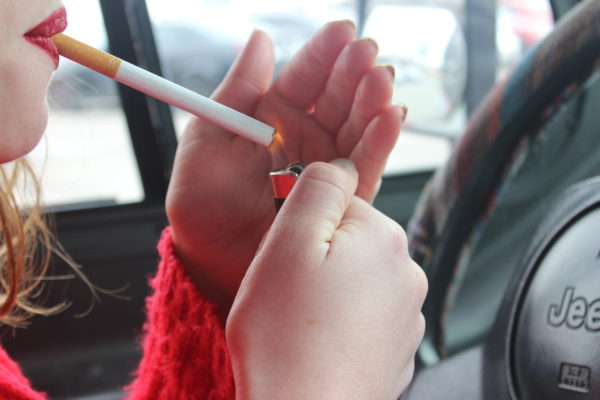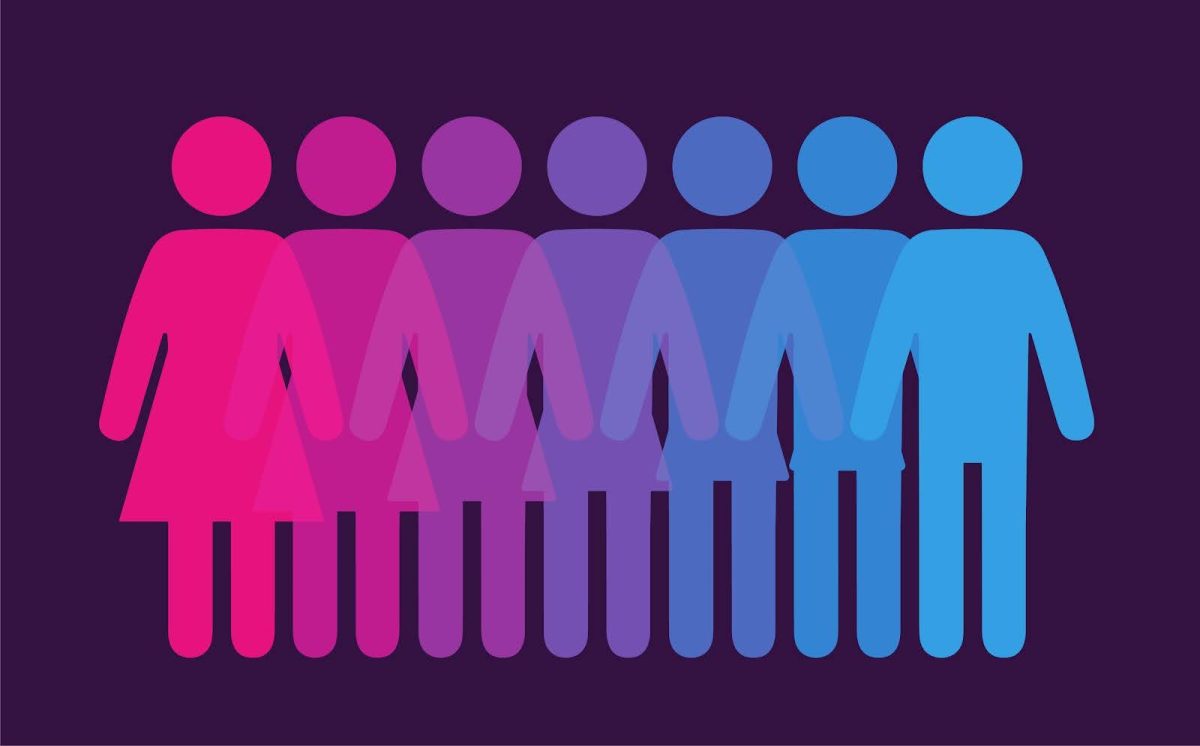Feature Photo By: Connor Rodenbeck – A student lights a cigarette in her car. Many students feel the need to behave recklessly, like smoking and drinking, due to societal pressures to be perfect.
I am 18 years old. I am an adult. Yet, I don’t feel like one.
I am still a teenager trying to find himself. I have never particularly wanted to rebel against my parents in huge ways; however, I do find myself wanting to do things that make my life feel just a little less boring.
But why do teens feel like their lives aren’t fulfilling? What leads them to reckless, dangerous behavior?
Biologically, it has to do with how the brain is developing through puberty. According to sciencemag.org, the changes going on in a teenager’s brain makes it harder for them to “rein in their behavior.”
The changes are mostly happening in the prefrontal cortex, which is responsible for things like planning and controlling emotions.
A BBC article states that teenage brains lack “essential braking mechanisms on impulsive behavior that the prefrontal cortex provides.”
Science has proven that impulsive and reckless behavior can be attributed to biologically changes. Despite this, I think there is another cause that I can really relate to societal pressures to be successful.
As teenagers embark on their journey of education, it is ingrained in their minds that they need to do something worthwhile with their lives. This oftentimes means that teens are pressured to get perfect grades, pack their schedules with extracurriculars, and still have an amazing time in high school.

“I just think that the amount of pressure put on teenagers by their parents to be perfect and by peers to be cool creates a toxic environment where kids are pressured,” senior Trinity Stevenson said.
I have felt this pressure considerably. I am supposed to be perfect in order to go to college, but still maintain a social standing with my peers. This is an extremely convoluted way to live, especially when you’re an impressionable teen.
The typical high school experience includes parties and reckless decisions. So, teenagers tend to emulate what they see.
“The media…plays a large role in how teenagers perceive their own high school experience,” senior Maddie Heiken commented. “If a teenager feels like they haven’t lived up to what the stereotypical ‘high school experience’ is, then they’ll think they have to act that way or make those specific decisions.”
Whether the reckless behavior is going 20 MPH over the speed limit or partaking in drinking or drugs, teens feel like they need to be reckless in order to fit in.
I think when a group of friends gets together, it is easy to make impulsive decisions because it acts as one and doesn’t individually think about the possible consequences. Teens just want to have fun, but dangerous decisions can lead to terrible consequences that can impact the future.
Counselor Mrs. Moriarty said, “Peer pressure comes into play and they’re not quite sure how to say no or they’re too afraid to say no.”
During my last year of high school, I have felt this pressure immensely and I think that most people can relate. We are pressured to be extraordinary at a time where being ordinary is comforting.
I have recently been able to reflect on a terrible, reckless decision that I made. Sometimes, it takes tears, hugs, shouting, isolation, and time to understand the stupidity of a mistake. I am grateful that I had this valuable time to reflect and realize that mistakes only define people if they don’t learn from them.

Teenagers are misunderstood and their impulsive behavior is looked down upon. What parents, teachers, and mentors need to do is empathize and understand that we are simply growing as people and that the constant pressure society forces on us push us to explode with bad decisions.
I have seen adults be completely understanding in the wake of reckless behavior. What should happen is telling teenagers that it is acceptable to not be perfect. Everyone makes mistakes.
Teenagers and adults need to work together to make sure that lessons are being learned from the mistakes being made.
You are not your mistakes. You can learn from your experiences. You must reflect on your actions. Only then will you be able to grow and prosper in adulthood.






